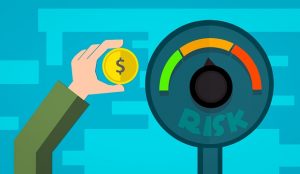
Money is quite a sort of a toddler. If you’re not keeping an in-depth eye thereon, it’s visiting go forth. Lucky for us, mobile technology makes it comparatively easy to mind our money nowadays. Personal finance apps syncs to our MasterCard and bank accounts, keep real-time monitoring of our income and highlight positive and negative trends.
Minding your money digitally is significant for the fashionable doctor, who is more pressed for time than ever. Digital financial solutions can release minutes in your day and hours in your week.
Here are 7 apps that we predict are great for money management.
Quicken
Quicken is that the original name in personal finance software. Unlike much-discussed Mint, Quicken isn’t free. It charges users an annual subscription. The paid subscription, however, is well worth the price. To supplement what has been exclusively desktop software, Quicken also added a mobile app.
You will likely want to go for the Deluxe version, which costs $44.99 annually. The Deluxe version gives you all of the capabilities of the essential offering, which include a summary of all of your accounts, automatic expense categorization, and one-month budgeting. But most doctors will enjoy the expanded features of Deluxe, which include 12-month budgeting with customizable goals, principal and interest tracking for loans, and a customizable investment portfolio view.
Venmo
Long gone are the days of settling up with dirty, bacteria-laden cash. Venmo is your new, hygienic supporter. This Paypal-owned mobile application links on to your checking account, debit card, or MasterCard and allows you to transfer money to your friends. Transactions are free, from checking or savings accounts, to debit cards. For a third transaction fee, you’ll be able to send money from a MasterCard account. Some stores are even accepting payments from Venmo.
If you grant the app access to your contacts, Venmo will scan them to spot Venmo users in your address book, making it easier for you to send and receive money. But beware, by default, Venmo allows other Venmo users to see all your transactions. If you don’t like this, switch it to non-public. Other than any issue with Venmo payment that you might encounter, this app is perfect for your mobile payment needs.
Splitwise
Ever vacation with friends or family and undergo the method of settling up after the trip is over? It may be about as pleasant as a tooth extraction. With just over the $1.50 she stiffed you on a dip, don’t strain your relationship with dear Aunt Mildred. Instead, get Splitwise.
Splitwise takes the tension and guesswork away from settling up. Simply add everyone in your party to the app. Then, every user in your group enters their spending for the group. At the top of the outing, the app automatically calculates who owes what and to whom. Once you recognize what you owe, use Venmo to settle up quickly so everyone goes home happy.
ALSO READ: Ways to Manage Your Money
Clarity Money
Your personal finances can erode over time by monthly subscriptions. We posted about how it can happen a few weeks ago. Some geographical region wizard has come up with how to streamline the elimination of those financial succubi.
Clarity Money uses computing to spot monthly subscriptions in your financial accounts. It highlights what you’re paying and simplifies the method of eliminating these financial drains if you do not want them. Clarity Money also will make bigger-picture financial recommendations supported the information to guide you toward financial prosperity.
Credit Karma
Know thyself. And thy credit score. Credit Karma allows you to stay an eye fixed on how your credit is doing free. The app shows you Equifax and TransUnion scores, supplying you with a reasonably broad overview of how your financial decisions affect your credit. Your score is updated weekly and you’ll compare your score to others by income, age, and placement.
Just remember that free doesn’t always mean free. From the advertisements that it serves you is how Credit Karma makes money. It uses your financial data to indicate more relevant advertising. Maybe turn over the ad for the most recent rewards card.
Acorns
Struggling to save lots for retirement? Acorns isn’t exactly an answer, but it’s an honest place to begin. To help you build the habit, Acorns automates the investment process. Link the app to a debit or MasterCard. The app automatically rounds up to the closest dollar and invests the change in an investment portfolio of your choosing.
This shouldn’t be a replacement for your employer’s retirement program. Acorn only offers individual taxable accounts. Also, if you employ this rather than what your employer is offering, you may be walking aloof from free money within the sort of an employer match. Think about any money you may accrue here as icing on the cake at your eventual retirement party.
Prism
Prism could be a well-designed bill management and payment solution. Rather than signing into multiple accounts to pay your bills, Prism puts all of them in one place. They need 11,000 billers already on file to streamline the setup process, the app makers boast. These include banks, utility companies, and subscription services, like Netflix.
You can make manual payments through the app or founded automatic recurring payments. With regards to your upcoming bills to avoid late payments, Prism will even remind you of them.
























 Technology and the internet have greatly changed the way we as people live every aspect of our lives. This would include making investments for financial security. For instance, buying stocks before wasn’t easy as your order has to go through a complex net of specialists and brokers before your order is executed and completed. Today, online brokers are available and access to markets to make investments is simple and easy.
Technology and the internet have greatly changed the way we as people live every aspect of our lives. This would include making investments for financial security. For instance, buying stocks before wasn’t easy as your order has to go through a complex net of specialists and brokers before your order is executed and completed. Today, online brokers are available and access to markets to make investments is simple and easy. Define your Goals as well as Risk Tolerance
Define your Goals as well as Risk Tolerance




